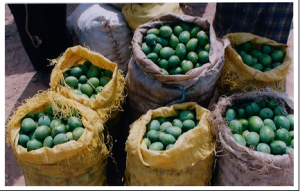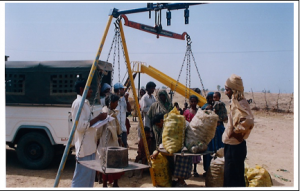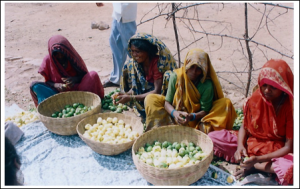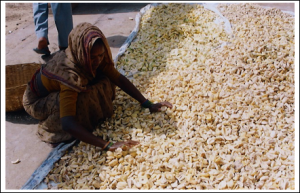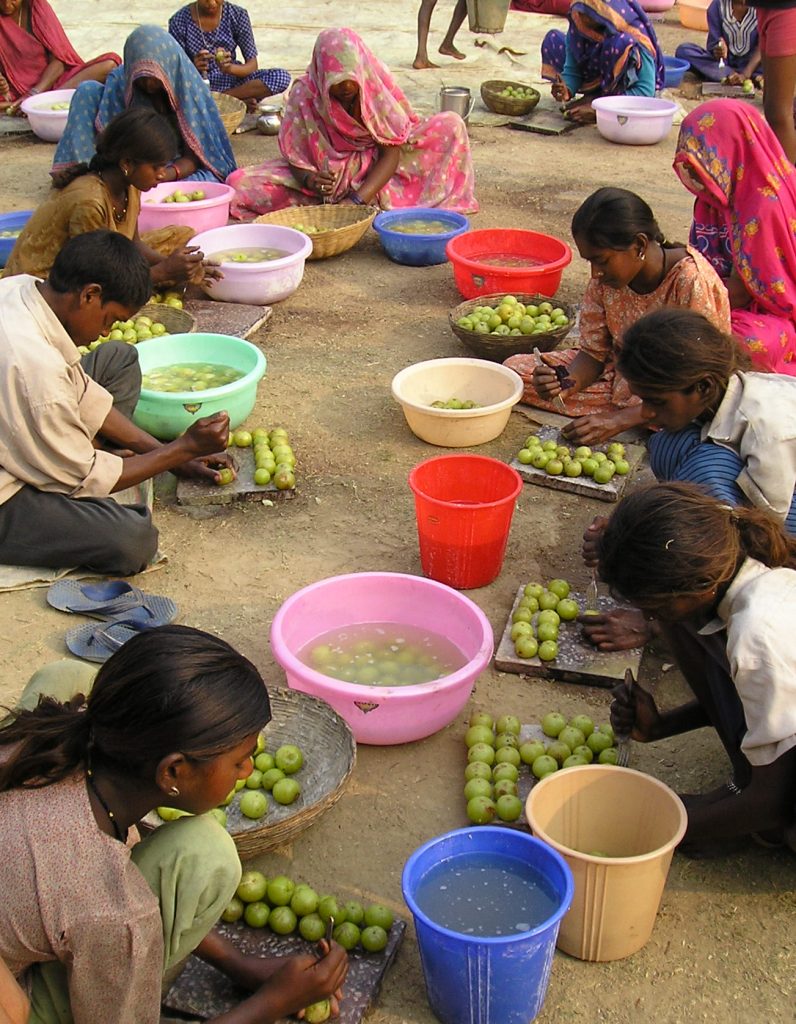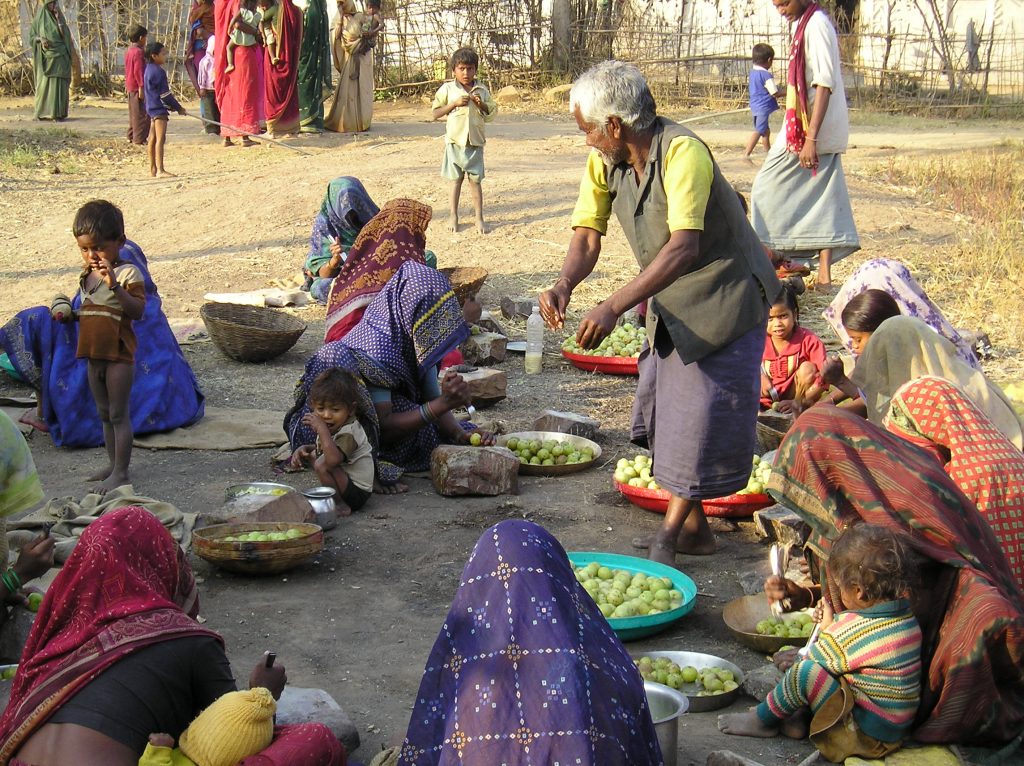VERTICALLY INTEGRATED INCOME GENERATION Self Help Groups (SHGs)
For the success of any effort to improve the economic condition of BPL families, Non Farm Sector income generation, without causing a migration from the villages, is a key factor. The problem with this is two-fold. First, these is a lack of opportunity and second, there is a lack of organisation.
To overcome the lack of opportunity, Deendayal Research Institute (DRI) has envisaged a multi level production flow, using Udyamita Vidyapeeth as its focal point that would bring some of the value addition processes into the village itself. The products would be those that use farm or forest produce as the base raw material.
To overcome the second problem, namely the lack of organization, DRI has adapted the brilliant but under-utilised Governmental concept of Self Help Groups. Self Help Groups are today mainly an alternate banking system, with income generation a secondary activity, of a socio-economic grouping of 20-25 persons, usually on a gender basis, where members are encouraged to save a part of their earnings and where the savings form a corpus from which any member in financial trouble can draw an advance or loan. Peer pressure from within the group ensures an almost non-existent default rate. This model assumes that the group already has some employment; and the group’s skills are sometimes enhanced through training and better facilities.
DRIs SHGs are a grouping of 5-7 persons formed to perform a specific economic task/job function, regardless of skill or gender, and based solely on a desire to perform the task. Training is imparted to the group, either through a government scheme, when available, or through DRI’s resources when not available. The training stipend is pooled together to give the group seed money for any implements or tools required for the task. The idea behind a small SHG is that 5-7 persons can establish a bond among themselves. Friendship and camaraderie are key factors in teaching villagers to work together.
In the current production process, farm and forest produce are merely collected at the village level from where they are sold either to a middleman or at the nearest mandi. Any processing or value addition is then done outside of the village. This results in only a fraction of the realizable value of the produce remaining in the village.
DRIs multi level employment scheme focus on keeping the maximum realizable value of the produce in the village itself. It achieves this through a two-pronged strategy. Each stage of the process from raw material to finished product is carefully defined – from collection, through the various intermediary stages until quality control to packaging. As many of the stages as possible would be retained in the village itself. The semi-processed produce will then be taken to Udyamita Vidyapeeth for grading, quality control, final processing, packaging and dispatch. Each stage of the process would be completed by a SHG. In a normal production flow, SHGs at the lower end of the production process, like collection, have a far lower economic value than those involved in the higher end of the process. DRI envisages an equal distribution of income across the production process. For example, if there are 7 stages to a particular production flow, Udyamita Vidyapeeth will determine a basic payment for each SHG – assume Rs. 2/- per kg. for each production stage, making a total of Rs. 14/-. If the selling price for the produce is Rs. 25/, Udyamita Vidyapeeth will deduct its infrastructural costs of say Rs. 4/-, and the supernormal profit of Rs. 7 will be divided equally among all the 7 SHGs involved in the process, so that each SHG will receive Rs. 3/- instead of Rs. 2/-.
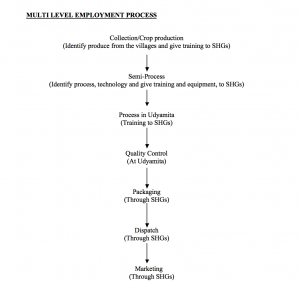
Also, wherever possible, traditional artisan skills will be gathered and improved upon with training to implement a scheme of ‘one village, one product’ to produce a range of finished good that would be packaged and marketed through Udyamita Vidyapeeth. The village would also be divided into SHGs.

